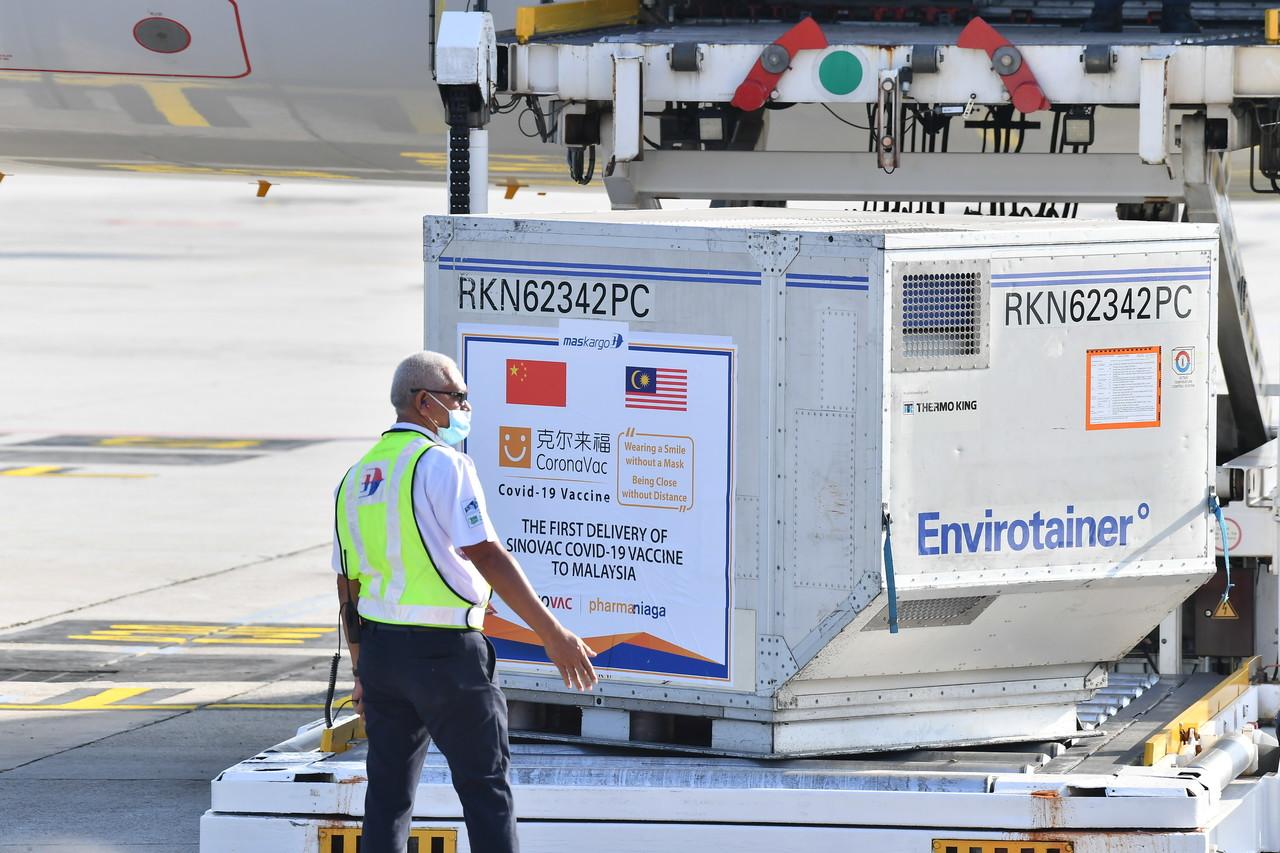Health experts move to ease fears over ‘Made in China’ vaccine
Concerns have been raised over its relatively low efficacy rate and its origins in a country known for cheap production.
Just over a week ago, 200 litres of a vaccine that could help turn the tide in the country’s battle against Covid-19 arrived amid tight security at KLIA in Sepang, Selangor.
The vaccine – enough for more than 300,000 doses – arrived in a plane bearing the livery of the national flag and was welcomed upon touchdown by senior ministers including Ismail Sabri Yaakob, Hishammuddin Hussein and Khairy Jamaluddin, the minister in charge of Malaysia’s vaccine procurement.
But despite numerous assurances of the vaccine’s safety and efficacy, public concern remains over the CoronaVac jabs by China’s Sinovac.
Some, known colloquially as anti-vaxxers, would shun any and all vaccines to begin with. For others, though, the concerns are more specific.
Some have reservations over the efficacy rate of the Chinese vaccine. Several clinical trials overseas have concluded that the CoronaVac jab is about 50% effective – significantly lower than the vaccine created by US firm Pfizer and its German counterpart BioNTech, Moderna and Russia’s Sputnik V, all of which are over 90% effective.
Others are concerned about the vaccine’s origins, demonstrating the strength of the stigma attached to the “Made in China” label.
The prime minister himself recently sought to allay concerns over brand names, saying every vaccine administered would have received approval from the National Pharmaceutical Regulatory Agency or NPRA.
“They (the vaccines) have all been tested and approved, and I am confident that when the immunisation programme is properly implemented by the management committees, it will give us a lot of advantages,” Muhyiddin Yassin said on a visit to Perlis on Friday.
Several clinical trials overseas have concluded that the CoronaVac jab is about 50% effective – significantly lower than Pfizer-BioNTech, Moderna and Sputnik V.
Health experts, too, are reassuring the people that there is little to worry about as far as the Chinese vaccine is concerned.
Malaysian Medical Association president Dr Subramaniam Muniandy, acknowledging the relatively low efficacy rate of 50%, said nonetheless that published data has also shown that the vaccine is about 84% effective in preventing hospitalisation, and nearly 100% effective in preventing severe illness and death.
“There isn’t as much data for the Sinovac vaccine as there is for Pfizer, AstraZeneca, Moderna, and Johnson & Johnson,” he told MalaysiaNow.
“But as this is a more ‘traditional’ vaccine, side effects are likely to be similar to those of known vaccines.
“Certainly nothing of concern has come to light yet,” he said, adding that based on currently available data, the Sinovac jab is an effective vaccine.
“People should take it if offered.”
High stakes
CoronaVac’s arrival in Malaysia followed that of Pfizer-BioNTech, more than 300,000 doses of which landed the week before. This was part of Malaysia’s total order of about 13 million doses, enough to cover 20% of the population through a two-dose regime.
Putrajaya has also ordered vaccines from China’s CanSino, Russia’s Gamaleya and the Covax facility, with Khairy saying on Feb 17 that the government would also sign a procurement contract with the US’ Johnson & Johnson.
The national vaccination programme kicked off on Feb 24 with the Pfizer-BioNTech vaccine. The health ministry has granted conditional approval for the vaccines by Sinovac and AstraZeneca.
Azrul Mohd Khalib, CEO of the Galen Centre for Health and Social Policy, said vaccines in Malaysia must undergo scrutiny and obtain approval from the NPRA.
In order to obtain approval, a candidate vaccine must successfully complete its clinical trials, especially Phase 3 which looks at efficacy and safety.
“No human vaccine can be approved and licensed without successfully going through Phase 3. Not being able to do these clinical trials in Malaysia is not a barrier to the use of vaccines in this country,” he added.
Speaking to MalaysiaNow, he said if the CoronaVac shot has successfully gone through clinical trials elsewhere, possesses robust data demonstrating high levels of safety and efficacy, and has been proven to have high production quality, there is no reason it will not be approved and licensed for use in Malaysia.
“We need to trust the NPRA’s decision,” he said. “This agency is considered one of the best in the region and is known, sometimes infamously, for its strict adherence to these standards, which is why Malaysia has high standards when it comes to drugs and medicines.”
Azrul, who is also an active advocate for public health policy, said he trusts the NPRA’s decision to certify the safety, effectiveness and quality of the vaccines being approved, including CoronaVac.
“Compromising on that will undermine public trust regarding these new Covid-19 vaccines,” he said. “The stakes are high.”
Subscribe to our newsletter
To be updated with all the latest news and analyses daily.
